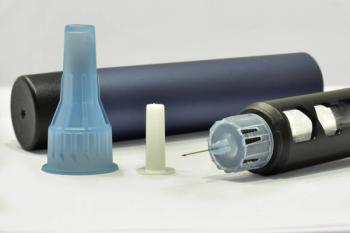
- Drug Topics November 2021
- Volume 165
- Issue 11
Patient Education is Key as Biosimilar Approvals Increase
Women make up to 80% of health care decisions in the United States, but for some, biosimilar knowledge is lacking.
Biosimilars are biological products that, according to the FDA, are “highly similar to and [have] no clinically meaningful differences from an existing FDA-approved reference product.”2 Biosimilars are near copies—though not exactly the same—as their reference biologics, and both biologics and biosimilars are made from living organisms or natural sources.3 Biosimilars are particularly important for women’s health because many biosimilars treat conditions that disproportionately affect women, such as breast cancer, rheumatoid arthritis, and irritable bowel syndrome, and can reduce treatment costs by 21%.4
It is estimated that 67% of the recipients of biosimilars are women. However, a HealthyWomen survey showed that 70% of female patients did not understand biosimilars or biologics.1 Because biosimilars are relatively new in the United States, education gaps persist among patients and even health care providers.1
Between March 4, 2021, and March 18, 2021, HealthyWomen, a nonprofit organization that aims to empower women to take a proactive role in their health and the health of their families, conducted a series of 3 roundtable forums titled the “Value of Biosimilars in Women’s Health.”1
The series brought together a wide range of health care experts, from patients and advocates to physicians, researchers, and drug company leaders, who shed light on key topics and painted an inspiring picture of the potential for biosimilars to improve women’s access to affordable care.
Across the series, several key themes emerged1:
- Education on biosimilars is needed.
- We’re still in the early days of biosimilars in the United States, and more biosimilars are coming.
- Biosimilars show promise for lowering costs and improving access to care, especially for women.
- Communication about treatment options that include biosimilars is key.
According to HealthyWomen, as prescribers have become more comfortable with biosimilars, some of these treatments have become the go-to
drug in their category. For example, a biosimilar that promotes white blood cell production after cancer treatment has a 72% utilization rate. However, another biosimilar—this one for autoimmune disorders—represented just 17% of the market.
Angus Worthing, MD, FACP, FACR, of Arthritis and Rheumatism Associates and a clinical assistant professor of medicine (rheumatology) at Georgetown University Medical Center, has seen his patients on biologic or biosimilar therapy finally find relief after months or years of disabling pain.
“Getting on these drugs not only helps pain but prevents disability from joint damage and improves people’s health and lifespan,” he said. The Biologics Price Competition and Innovation Act of 2009,5 part of the Affordable Care Act, created an abbreviated approval path for biosimilars.
So far, the FDA has approved 31 biosimilars, 20 of which are currently available to patients.6 More biosimilars are coming, but for them to achieve their potential, patients and health care providers alike need to better understand these agents.
Articles in this issue
about 4 years ago
New Advances in Breast Cancer Therapyabout 4 years ago
Sleep Deprivation Can Mimic ADHDabout 4 years ago
Making Life Easier for Families of Children With Type 1 Diabetesabout 4 years ago
Launch Your Own Diabetes Prevention Programabout 4 years ago
Research Suggests Ways to Decrease Food Allergy Prevalence in Kidsabout 4 years ago
The Cost of Antibiotic Resistanceabout 4 years ago
Biologics for Children With AsthmaNewsletter
Pharmacy practice is always changing. Stay ahead of the curve with the Drug Topics newsletter and get the latest drug information, industry trends, and patient care tips.






















